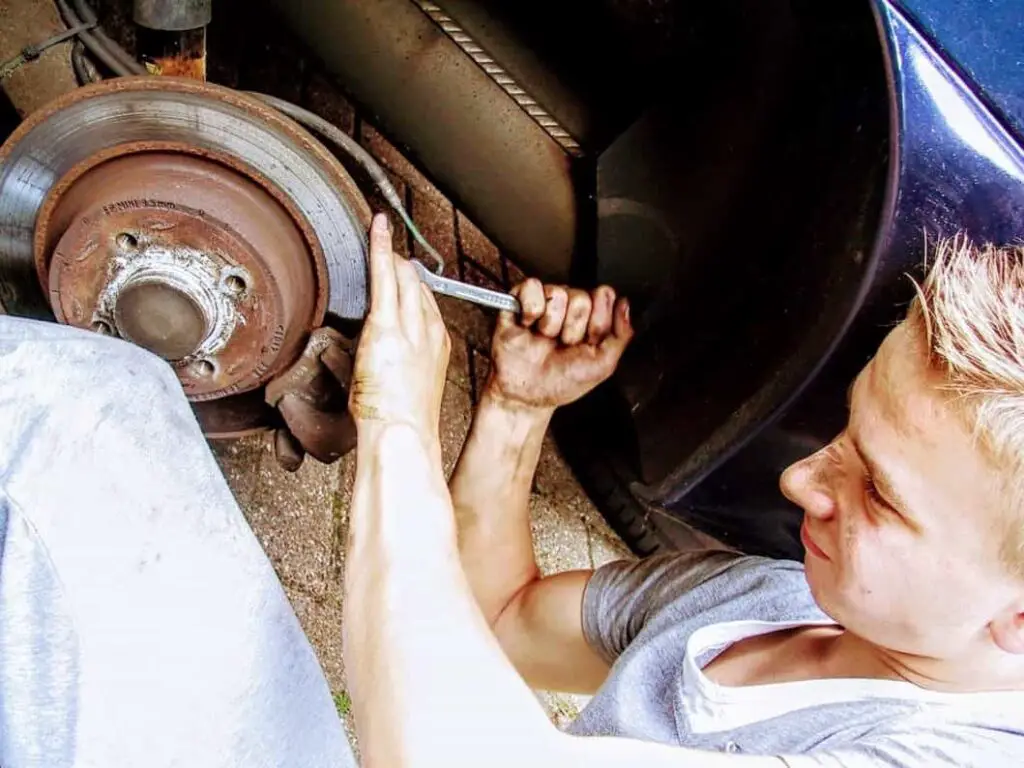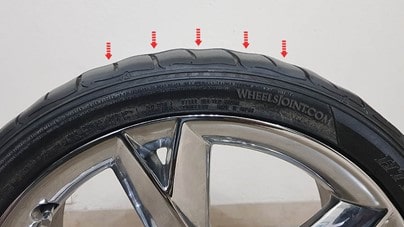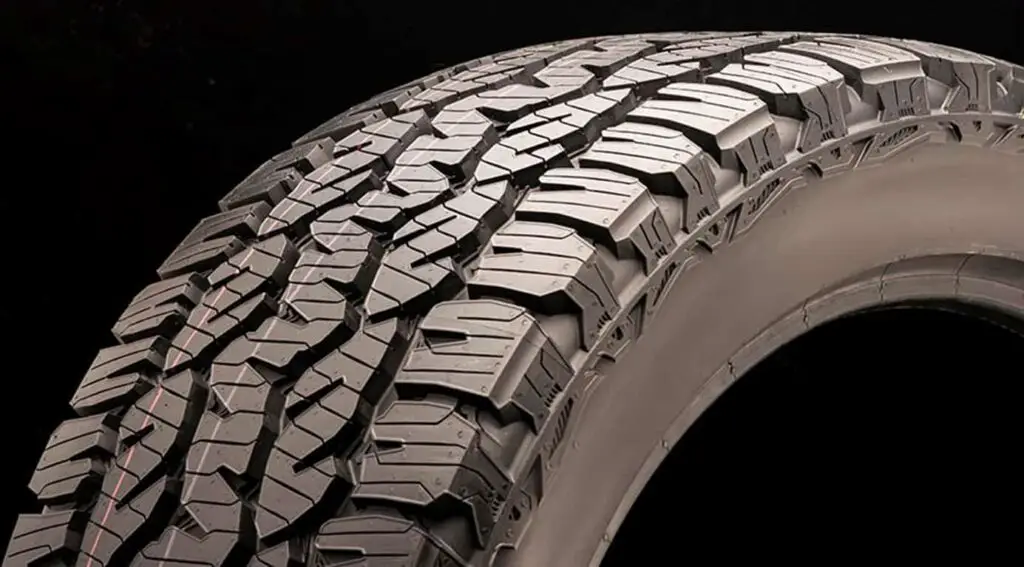Tires are the main support of the car, they help you drive safely on the most dangerous tracks. But sometimes they can be annoying especially when they start making weird noises.
The reasons why your tires can start making humming noise is due to underinflated tires, damaged wheel bearing, misaligned wheels, or cupped tires. You can get rid of the noise by inspecting your wheel bearing, making sure wheels are aligned, and getting your tires checked by a mechanic for possible cupping.
Here’s a short overview of what might be causing the humming noise with their possible solutions.
| Symptom | Solution |
|---|---|
| 1. Sharp Grinding Sound | Check your wheel bearing |
| 2. Bad Alignment + Humming Sound | Get your wheels aligned by a mechanic and check the suspension of the car as well |
| 3. Humming Sound + New Tires | If you just changed your car’s tires, drive it for 100-200 miles more and check |
| 4. Humming Sound + Old Tires | That might be due to “cupping”. Get your tires checked by a mechanic |
Why does your tires make a humming noise?
Each of these causes has its symptoms and remedies, let’s explore them one by one.
1. Faulty Wheel Bearing
A wheel bearing is one of the components closely associated with the tires, so most of the time, the humming or grinding noise, you hear is from a faulty wheel bearing.
To understand how this noise is produced, you need to understand the function and position of the bearing.
The wheel bearing is a series of metal balls, held together by a metal ring. They connect the wheels to the car’s wheel to the axle and reduce friction to ensure smooth driving.
Wheel bearings typically have a lifespan of 85000 to 100,000 miles, with time they wear out and produce vibrations that appear as noise.

Since there are other causes of the humming noise in the tires, to identify if it’s really a wheel bearing that is the cause of all trouble, you can check that by a few indicators.
The faulty bearings produce more of a constant grinding and roaring noise rather than humming.
You may feel the brake pedal low and spongy when you apply brakes.
Similarly, if the wheel bearings are at fault, you will experience some side pulls while turning, and have vague steering.
Faulty bearings not just produce this irritating noise, but they actually are a sign of great danger coming ahead.
If your wheel bearings are at fault, then they can damage your brakes, rotors, suspension, and cause the wear and tear of tires.
ntent - longer_content -->And if you continue driving with faulty bearings, the wheel can seize suddenly, causing the vehicle to stop instantly, resulting in an accident.
So, to avoid an unfortunate incident, it is advised that you should replace your wheel bearings timely.
2. Bad Car Alignment/ Suspension
Sometimes you may hit a sudden pothole, which might have affected your suspension. This can also cause your tires to make a humming sound.
Similarly, the suspension components of the car, such as struts or shocks, wear out over time, severely affecting the alignment of the car.
Whatever the maybe the cause, if the suspension is disturbed, the car will make noises.
This noise becomes loud each time you accelerate.
Similarly, the other symptoms of bad alignment are: bumpy rides on smooth surfaces, steering wheel shake, vehicle pulls to either right or left. And sometimes it may cause the cupping of the tires.
So, along with the humming sound, if your car is showing these signs, it’s time to get the car aligned, by a mechanic.
3. Uneven Tread / Cupping
If your tire is unevenly worn out, its contact with the ground surface is not uniform. This results in humming noises from the tires.
In technical terms, the tread is the groove pattern of your tires, which makes the contact with the ground.
Sometimes the tread is worn out so much that the tire basically looks ‘bald’. Yeah, we actually call them ‘bald tires’.

This tread wears, due to a phenomenon known as cupping. The uneven wear pattern of a tire is also known as cupping.
The tire worn-out noise is often mixed with that of a bad bearing.
The tread depth is also reduced. The standard recommended tread depth is 2/32”.
The cupping is often caused if the tires are out of balance, the rims of the wheels are damaged, the suspension is damaged.
So, you can now understand that this problem is a result of the two reasons already mentioned.
Hence, if your tires are worn, you need a complete check-up for the suspension and wheels of the car.
4. Large Treads on Tires
If recently you have replaced your tires, and now you are hearing a noise. Then, the large treads on the treads may be a reason.
Large treads on tires can be noisy on the highway. This is not a defect, the noise may fade away, once you drive a few hundred miles.

Can low-pressure tires be the cause of humming noise?
One main cause of the wearing of tires, that people ignore is the air pressure of the tires. Sometimes, all of the tires of the car are not inflated properly.
If one or more tires have a low pressure than the others. This causes an imbalance and disturbs the alignment of the vehicle. Since we already mentioned that the misalignment of the car can cause this humming noise.
So, to ensure that your car keeps on running smoothly, you have to regularly get your tires inflated as per the standard recommendations of the manufacturer.
An average recommended air pressure for the tires ranges from 30 to 35 PSI. It is also recommended not to leave your car sit on flat tires for more than a day.
However, if your tires are under-inflated because of a slow leak or a small puncture, you can use ‘Fix-a-flat’ for that.
How to get rid of tire humming noise?
The main causes of the humming noise have already been discussed. The noise can be avoided based on the source, which is causing that noise.
For instance, if you hear a sharp grinding sound, which is possibly from a bearing, then the best solution is to replace it.
Ensure that all the tires of your automobile must maintain the standard air pressure recommended by the manufacturer.
In addition, regularly get your tires checked for uneven wear or cupping by a mechanic.
Sometimes, the noise is linked to multiple sources, so you need to ensure that each component that may be linked to this noise is functioning properly.
Conclusion
We have covered the major reasons why your tires are making a humming noise. I hope by now, you can now figure out, what may be the possible reason for noise from your vehicle and do the necessary fixes to get rid of that irritating noise.

